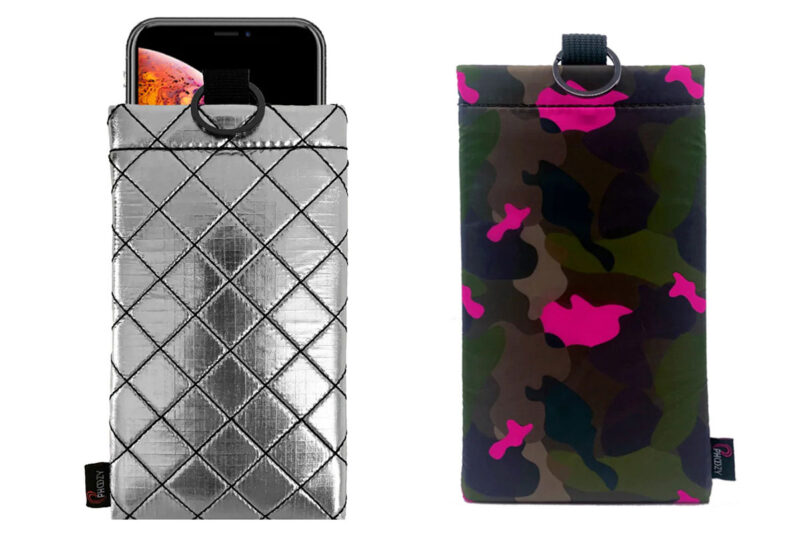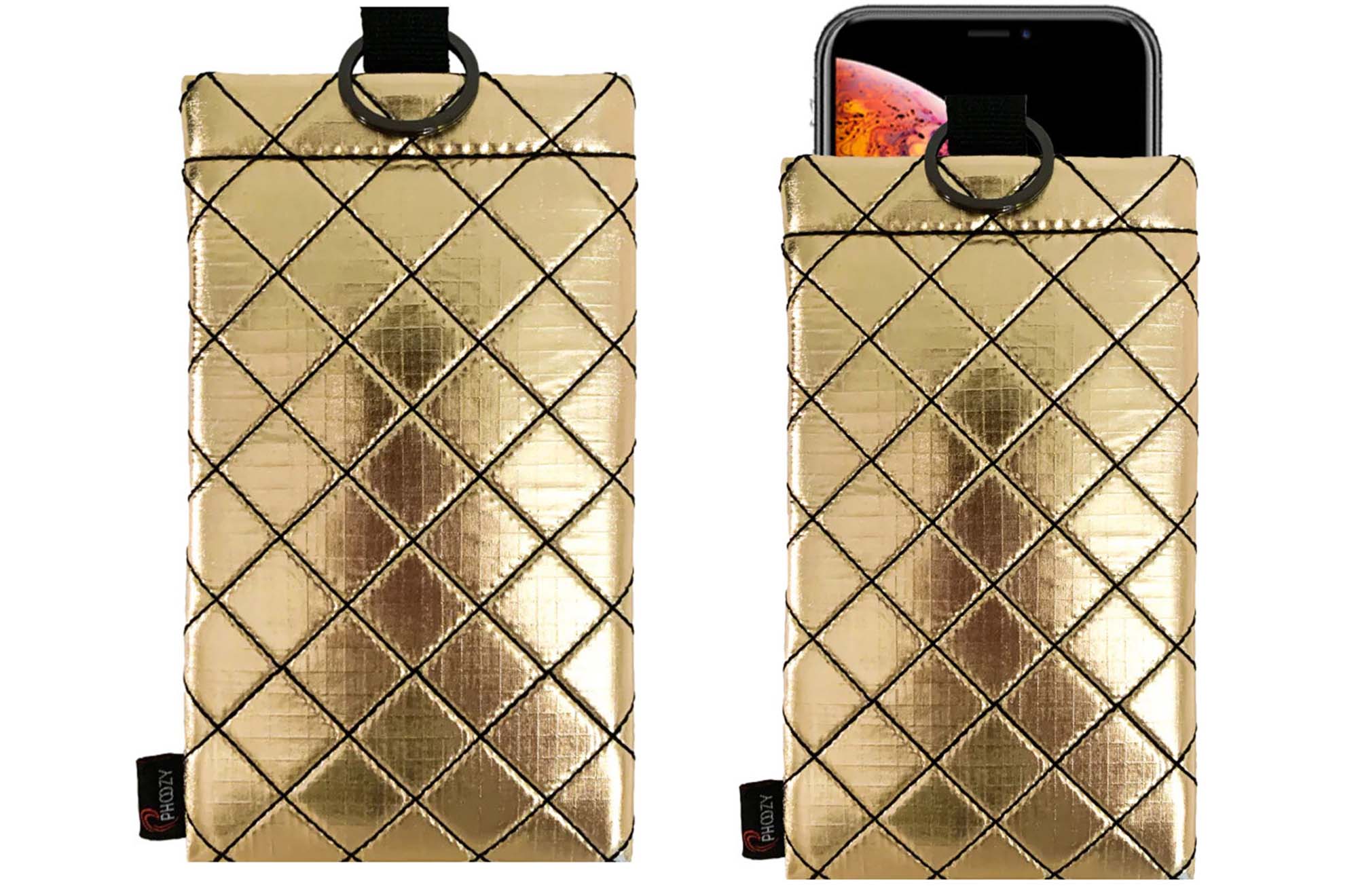Phone case. Phone sleeve…Thermal capsule?
The product descriptions for Phoozy include several names for their patented approach to keeping smart phones safe from the elements. When the company’s two founders appeared on Shark Tank last year to present their NASA-inspired phone cases, the judges (sorry, that’s “sharks” in the show’s parlance) were initially skeptical.
But eventually, two of them — Lori Greiner and Robert Herjavec — agreed to invest in the company.
So what makes the cases special? Well, as any outdoorsy person with a smart phone can attest, the devices don’t hold up well against extreme temperatures. So Phoozy cases use materials “adapted from those designed by NASA to protect astronauts in the extreme temperatures of space,” the website claims.
They call their tech a Chromium Thermal Barrier (patent pending, folks) and claim it reflects more than 90 percent of solar radiation. But that’s not all. The case actually sends those heat waves “back into space,” according to the website’s zealous marketing copy. The sleeve — also called a capsule, remember — insulates the device from cold, floats when dropped in water and provides “military-grade drop protection.” (If you’re wondering whether military drop tests actually mean anything, it’s likely they don’t, according to Digital Trends.)
In cold temperatures, the Phoozy’s insulating materials claim to extend battery life by four times compared to a normal case. (As someone whose phone always dies in the mountains after just a few hours, I can attest to this problem.)

The cases, which do look like sleeves, come in several colors, including seafoam green, cosmic black, and pink-accented camo. With the Apollo and Apollo II, seemingly the company’s flagship products, it’s hard not to notice the silver and gold versions. For $40 MSRP, the Apollo II + Antimicrobial sports a spacesuit-like texture and reflective metallic colors that certainly capture the Space Age aesthetic (while also channeling a bit of Versace).
Without some hands-on testing, it’s hard to say how well the cases actually hold up to the sun. That being said, it’s probably more protection than the one-third of Americans who still avoid sunscreen.
We all have our priorities.
